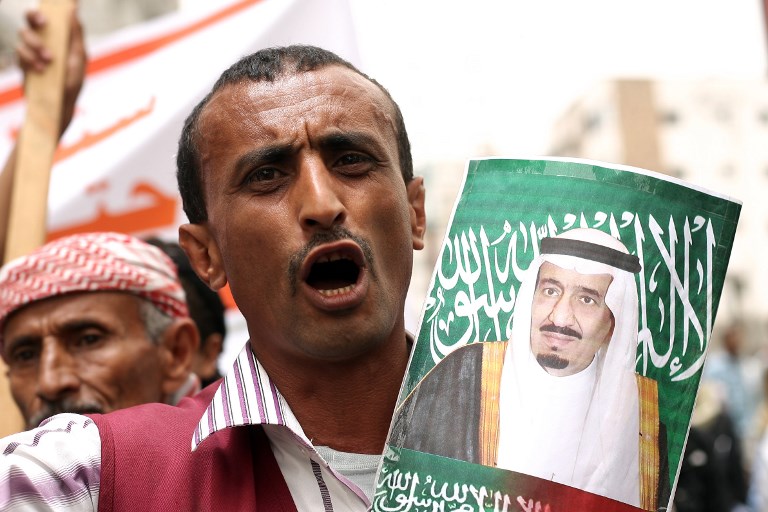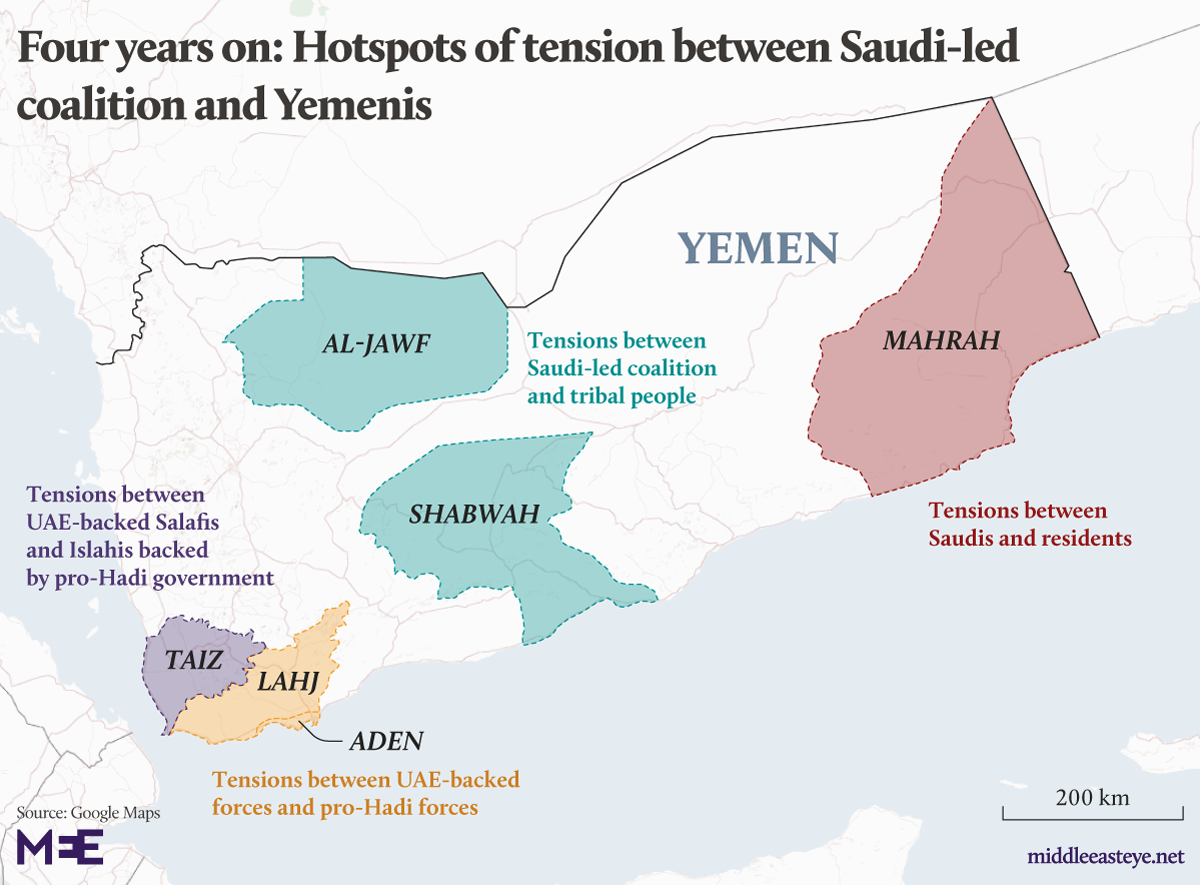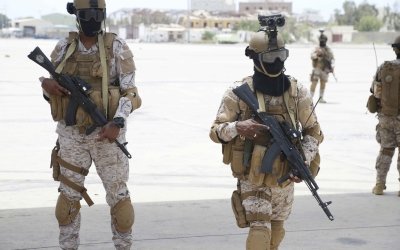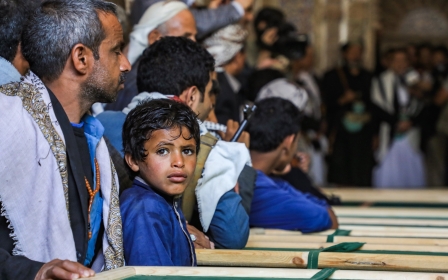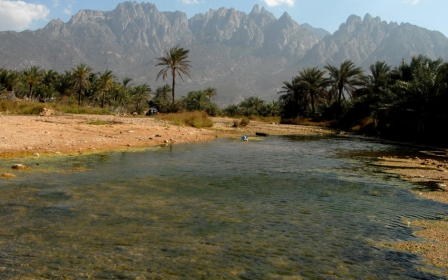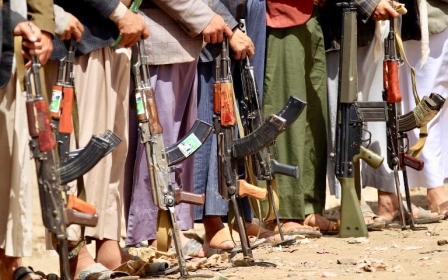Four years later, Saudi-led coalition has made more war than peace, say Yemenis
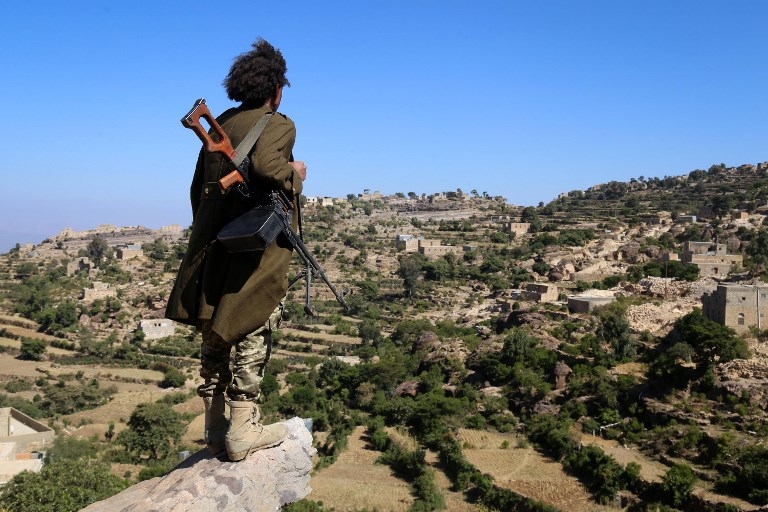
The Saudi-led coalition's entry into Yemen's war four years ago Tuesday may have been a lifeline for its shattered and defeated government.
The coalition's success at pulling the strands of Yemeni society together, however, is greatly up for question, and many Yemenis today believe the intervention only succeeded in muddying the waters instead.
'After four years of intervention, I hope that the Saudi-led coalition leaves Yemen before it becomes a new invasion'
- Ayman Mohammed, former pro-Hadi fighter in Taiz City
When Saudi jets began striking the Houthi-held capital Sanaa, on 26 March 2015, there were two warring parties in Yemen.
On one side the Houthi rebels, their allies led by former President Ali Abdullah Saleh and factions of the Yemeni army. On the other, loyalist Yemeni soldiers and several militias, tribal fighters and volunteers who rejected Houthi hegemony over the country.
Quickly the coalition made progress. President Abd Rabbuh Mansour Hadi escaped house arrest in the southern city of Aden for Riyadh and by the summer the coalition had taken back much of the south.
New MEE newsletter: Jerusalem Dispatch
Sign up to get the latest insights and analysis on Israel-Palestine, alongside Turkey Unpacked and other MEE newsletters
But in recent years any gains have been much harder to come by. And as the war drags on, and inflation, poverty and hunger bite, many Yemenis say rather than push back the Houthis, the Saudi-led intervention has created tensions in local communities that never existed before and exacerbated older ones.
Just this week, intense fighting in Taiz between Islahis and Salafis – both groups which are fighting the Houthis - has seen more than 80 people killed, many of them civilians.
The Islahis, the Yemeni branch of the Muslim Brotherhood, accuse the Salafis of being backed by the United Arab Emirates, a member of the Saudi-led coalition. Last year, a Buzzfeed report revealed that the Emiratis had hired a team of American and Israeli mercenaries to assassinate Islahi leaders.
The ongoing fighting between the groups is a dynamic that Ayman Mohammed, 42, never thought he would see. In March 2015, when the Houthis first invaded Taiz province, the electrician and father of three joined pro-Hadi fighters in Taiz City when they stormed an area under control by the Houthis.
Many fighters like Mohammed said they joined the pro-Hadi forces motivated by nationalism and sectarianism (they are largely Sunni while the Houthis are Shia). They weren’t receiving a salary or wages from any side and many fought with their own weapons.
“I am an electrician but in the beginning of the war, teachers, doctors, engineers and all groups of the society joined fighting against the Houthi rebels," Mohammed told Middle East Eye by phone.
“In the beginning of the Houthi invasion to Taiz, we were fighting them with high determination and I did not hesitate one day to be on the front line.
“Like most of the fighters, I was fighting with my own Kalashnikov and I did not wait for someone to provide me with a Kalashnikov to fight, as fighting was a national and religious duty.”
When the Saudi-led coalition first intervened, Mohammed said he and his fellow fighters posted photos of King Salman all over Taiz and organised a march, thanking him for his support of Yemen.
But one year later, as members of the coalition started to pay some of the pro-Hadi fighters but not others, the unity between pro-government forces broke down in several provinces, including Taiz, a trend that has lingered until now.
Feeding tensions
Taiz isn't the only province where the Saudi-led coalition has fed tensions.
In the eastern province of Al-Mahrah, there have been ongoing disputes between Saudi forces and residents despite the fact that the Houthis have never had a presence in the area.
In late 2017, the Saudis started setting up military bases in the province. By last September, one resident told MEE that the Saudis control of the border crossings between the province and Oman as well as a key port and local airport. He also said they have set up checkpoints across the province.
The Saudis say they are attempting to stop Houthis from smuggling weapons from Oman through the province. But residents question why Riyadh's military needs to have a presence in the largely peaceful area and have staged regular protests.
There have also been tensions in the southern provinces of Lahj, Shabwah and Aden between the Security Belt, a UAE-backed force established in March 2016, and pro-Hadi fighters and tribal leaders.
For this reason, many residents in southern provinces believe that the UAE created militias to fight the government, not defend it, in an eventual effort to control the country's resources.
“After four years of the Saudi-led intervention, I can say that the Saudi-led coalition succeeded in destroying the value of the state and they created their own militia everywhere around the country,” Manal, a resident in Aden, told MEE.
The UAE, for example, has invested in schools, water cooperatives and hospitals in both Aden and Lahj provinces, but Manal said that hadn't swayed her.
“We don’t want the money of the UAE, nor its militias in Aden. We only need peace and want our country to return as before 2015.”
And in the northern Al-Jawf province, the Bani Nawf tribe is currently in a deeply entrenched dispute with Saudi Arabia after coalition forces abducted several members of the tribe last year who were travelling to Oman.
In response, the tribe kidnapped four members of the Sixth Military District, Yemeni forces supporting the coalition, earlier this month, around the same time Saudi-led forces mistakenly bombed a pro-Hadi military base, killing seven soldiers and injure more than 20.
Members of the tribe have accused Saudi Arabia of creating chaos in their province.
One force, two faces
Not all Yemenis are against the coalition. Faisal Saeed, an Al-Jawf resident and qat seller, said he believes the Saudi-led force is better than the Houthis or al-Qaeda and have helped free parts of the country, even if no one wants to acknowledge that.
“You cannot find anyone who is impeccable and leaders of the coalition are also human beings,” Saeed told MEE. “The coalition supported us to liberate most of Al-Jawf province and this is the truth that anti-Saudi people deny.”
He added: “If not for the Saudi-led coalition, the Houthis would take over the whole country.”
'If not for the Saudi-led coalition, the Houthis would take over the whole country'
- Faisal Saeed, Al-Jawf resident
Saeed stated that he is not happy to see battles break out between pro-Hadi forces in Al-Jawf or other provinces, but he believes these issues are surmountable.
“We know there are disputes between the Bani Nawf tribe and Saudi forces backed by the Yemeni army, but I am sure they will approach reconciliation,” Saeed added.
But back in Taiz, Mohammed Ali, a seasoned Yemeni journalist based in the province, said he now believes the Saudi-led coalition and Yemeni army are more focused on fighting one another than liberating the country from the Houthis.
The Islahis, he said, claim to solely represent the Yemeni army in the area, fighting the Salafis under the pretext of maintaining security, while the Salafis also claim to be representatives of the army.
“Casualties from fighting between the pro-Hadi forces are more than the casualties from battles against the Houthis,” Ali told MEE.
“There are no battles against the Houthis in Taiz nowadays. The fierce battles are ongoing between the UAE-backed forces and the Hadi-backed forces in Taiz and most of the casualties are civilians.”
Mohammed, the electrician-turned-fighter, said in his mind, the coalition has created so much chaos that only mercenaries and those benefiting from the war want the coalition to stay in Yemen at this point. He fears the Houthi invasion may simply be replaced by another one.
“After four years of intervention, I hope that the Saudi-led coalition leaves Yemen before it becomes a new invasion,” he said.
Middle East Eye delivers independent and unrivalled coverage and analysis of the Middle East, North Africa and beyond. To learn more about republishing this content and the associated fees, please fill out this form. More about MEE can be found here.


